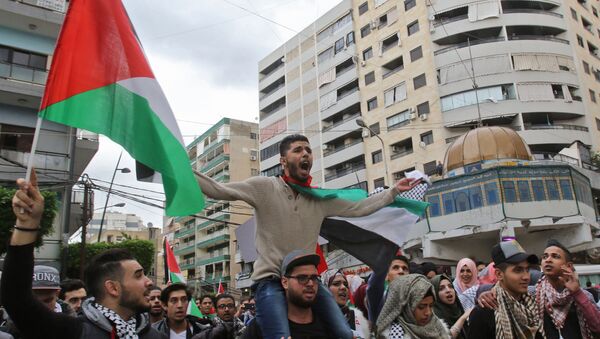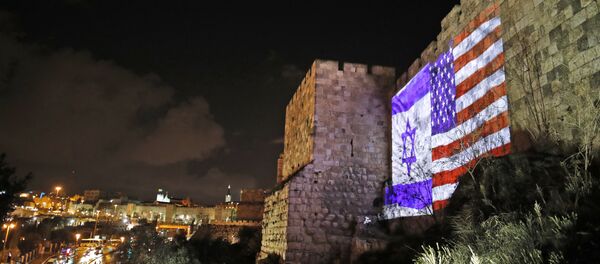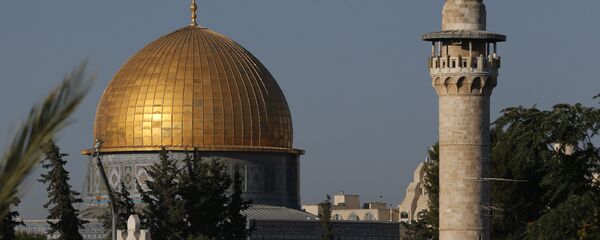On Wednesday, US President Donald Trump declared recognition of Jerusalem as the capital of Israel and ordered the Department of State to take measures for the relocation of the embassy from Tel Aviv to Jerusalem. However, he did sign a waiver to delay the relocation by six months, something all US presidents have signed every six months since the Jerusalem Embassy Act was passed in 1995.
The move is opposed by governments all over the world who fear that the move will result in more Middle Eastern conflict. Dr. Waleed AlModallal, Head of the Department of Economics and Political Science at the Islamic University of Gaza, told Radio Sputnik that Trump's announcement has aroused a lot of anger in Palestine and elsewhere.
Sputnik: Do you really think a war can erupt between Israel and Palestine, based on that?
Dr. Waleed AlModallal: It will make it difficult for the American side to play the role of a broker between the Palestinians and the Israelis. This decision isolates America from playing this role in the future and will ignite the fuels of the Intifada in the Palestinian territories, the West Bank and Gaza and inside East Jerusalem.
Sputnik: Trump said that he does support a two-state solution and he hopes that America can continue helping to reach a deal. He didn't say anything about West and East Jerusalem, he just said "Jerusalem." Do you think he might, in the future, support a division of the city?
Dr. Waleed AlModallal: "He doesn't know what he's talking about. West Jerusalem was occupied in 1948, and it's already under Israeli occupation and Israeli law as well. But, since 1967 the East has been considered by the international community and international law as an occupied part of Jerusalem.
When he talks about Jerusalem as a united city, according to the Israeli vision, I think he is including East and West. In addition, he is talking about a city which has been extended by the Israelis perhaps tenfold in 60 years. We are talking about an extended Jerusalem, on account of the Palestinian land in the West Bank.
Dr. Waleed AlModallal: Yes of course, especially some of these [Middle Eastern] countries, like Turkey and others. They will be under pressure from their people to freeze or stop their relationship with Israel. It will really badly affect Israel's international relations. Lots of these governments and organizations will be under public pressure to cease relations, especially in some democratic regimes.
What is needed not only to resolve the problems at hand, but to move forward toward a two-state solution?
Dr. Waleed AlModallal: It's too little and too late to talk about a two-state resolution, because Israel has completely occupied the country and tried to annex all the Palestinian land, to practice its law on these lands.
It's too late to talk about a two-state solution after all the settlement building since the 1960's occupation. The only thing to do is to stop such a stupid declaration and to force Israel to meet the international resolutions which have been made in the past.



